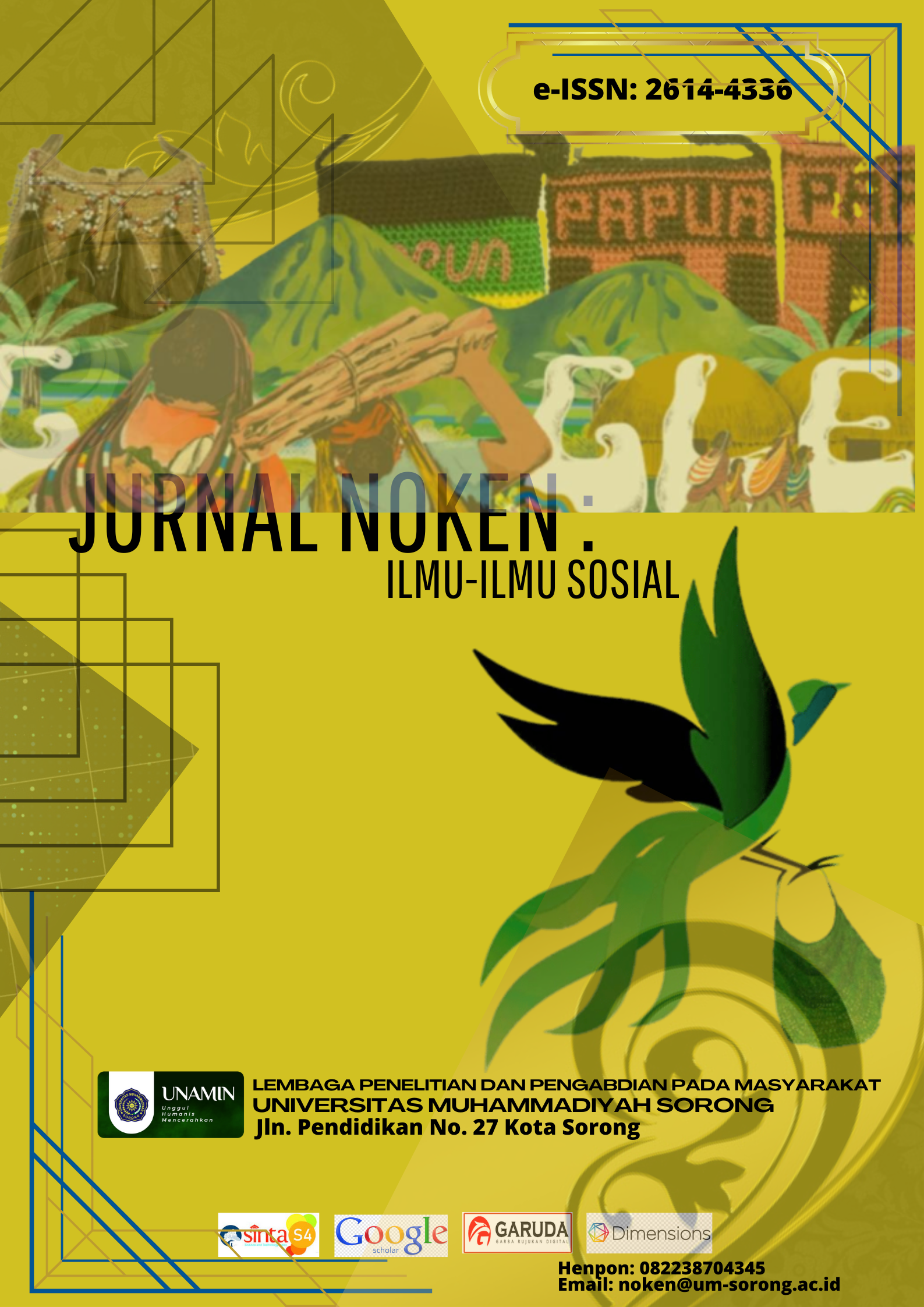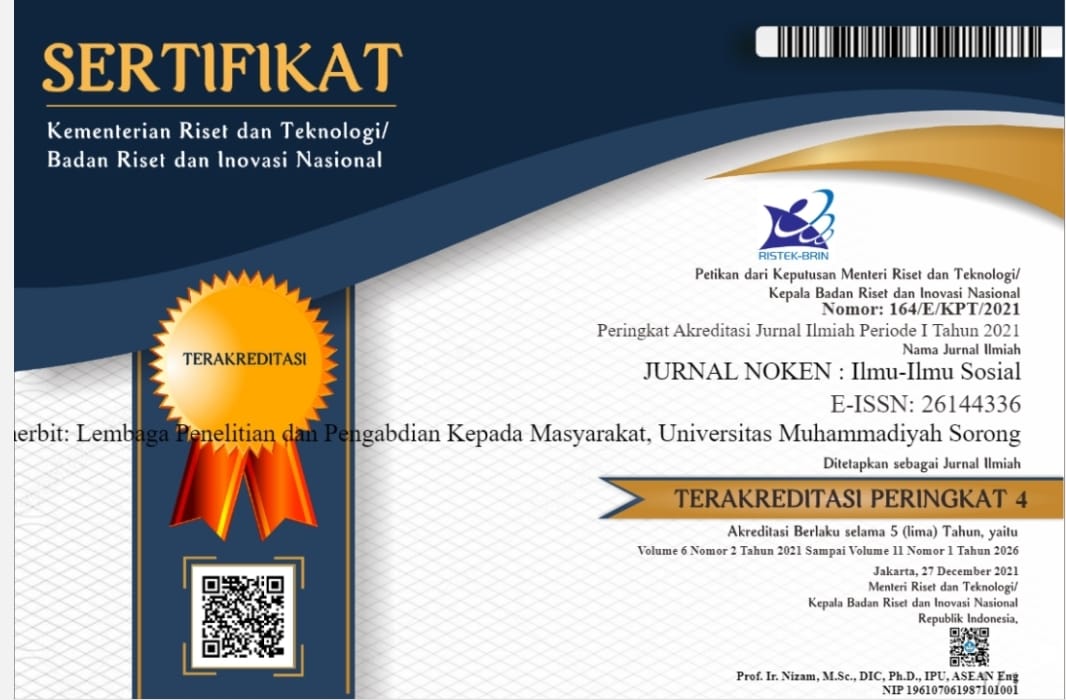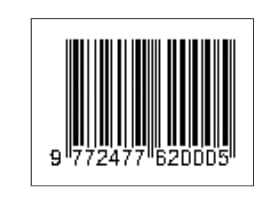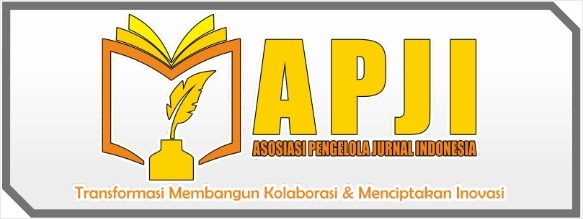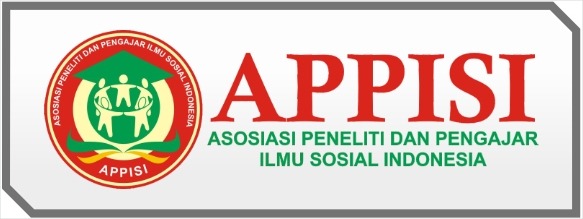Transformasi Literasi Digital di Papua Barat Daya: Tantangan dan Strategi Pasca Pembentukan Daerah Otonomi Baru
DOI:
https://doi.org/10.33506/jn.v11i2.4984Keywords:
Transformasi, Literasi Digital, Tantangan, Strategi, Daerah Otonomi BaruAbstract
The establishment of Southwest Papua Province through Law No. 29 of 2022 has created opportunities for digital literacy transformation, yet it continues to face complex structural, social, cultural, and geographical challenges. Disparities in internet access, limited digital devices, high data costs, low digital skills, and differing perceptions of technological benefits are primary obstacles to equitable digital literacy. This study aims to identify these barriers and formulate effective digital literacy strategies grounded in local wisdom. The research employs a mixed-methods approach with a Convergent Parallel design, combining a quantitative survey of 270 respondents and qualitative literature analysis to achieve a comprehensive understanding. Findings indicate that digital literacy among the population of Southwest Papua is hindered by economic factors, infrastructure limitations, technical capacity gaps, and cultural sensitivities. Effective strategies for enhancing digital literacy emphasize community participation, adaptation to local cultural values, gender inclusivity, youth empowerment, and the strengthening of technical, ethical, and digital cultural competencies. In conclusion, digital literacy transformation in Southwest Papua must adopt a holistic, contextual, and sustainable approach to empower communities, reinforce social cohesion, and support economic development and digital governance in the post-establishment era of the new autonomous region.
References
BPS PBD. (2025). Persentase Penduduk Miskin Papua Barat Daya September 2024 sebesar 16,95 persen. http://www.papuabarat.bps.go.id
Bungin, B. (2018). Quantitative Research Methods (Communication, Economics, and Public Policy and other sciences). In Prenadamedia Group.
Creswell, J. W. (2019). Research Design: Qualitative, Quantitative and Mixed Approaches. In Edisi III (Ed.), Pustaka Pelajar. Pustaka Pelajar.
DPR RI. (2022). Undang-undang Nomor 29 Tahun 2022 Tentang Pembentukan Provinsi Papua Barat Daya. https://peraturan.go.id/id/uu-no-29-tahun-2022
Fardiah, D., Darmawan, F., Rinawati, R., Cholifah, Y. W., & Abdullah, S. I. (2023). Instagram Content Impact on Digital Literacy Capability. Jurnal ASPIKOM, 8(1), 79. https://doi.org/10.24329/aspikom.v8i1.1219
Giroth, L. G. J., Purnomo, K. D. M., Dotulong, F., Mokoginta, D., & Pusung, P. H. (2024). Konsep, Urgensi dan Strategi Pembangunan Literasi Digital. Journal of Digital Literacy and Volunteering, 2(2), 83–90. https://doi.org/10.57119/litdig.v2i2.105
Hasan, N. F., Mulyadi, A. A. S., & Aisyah, A. (2024). Digital Literacy Training Based on Local Wisdom through a Digital Dictionary of Papuan Regional Languages to Preserve Sentani Language in Waibu District, Papua. Dinamisia : Jurnal Pengabdian Kepada Masyarakat, 8(2), 410–420. https://doi.org/10.31849/dinamisia.v8i2.17808
Higgins, N., Ferri, D., & Donnellan, K. (2023). Enhancing Access to Digital Culture for Vulnerable Groups: The Role of Public Authorities in Breaking Down Barriers. International Journal for the Semiotics of Law, 36(5), 2087–2114. https://doi.org/10.1007/s11196-022-09959-6
Intan, A., Rohmawati, N., & Artikel, I. (2023). Pemberdayaan Perempuan dalam Menghadapi Tantangan Gender di Era Digital. MUJAHADA: Jurnal Pengabdian Masyarakat, 01(1).
Juniarto, D., & Muhajir, A. (2020). The Rise of Digital Authoritarian.
Komdigi. (2024). Indeks Masyarakat Digital Indonesia 2024.
Mae, & CNBC Indonesia. (2023, December 27). Daftar Lengkap BTS 4G Kominfo, Ujung Aceh ke Pedalaman Papua . CNBC Indonesia. https://www.cnbcindonesia.com/research/20231227154444-128-500631/daftar-lengkap-bts-4g-kominfo-ujung-aceh-ke-pedalaman-papua
Moleong, L. J. (2022). Qualitative research methodology (Edisi revi). PT Remaja Rosdakarya.
Musfiroh, Sanmas, M., Sungga Dirgantari, A., Nur Jaya, M., & Laili, I. (2025). Peningkatan Literasi dan Keamanan Digital di Desa Sanggaria Keerom-Papua. JURNAL ABDIMAS PATIKALA, 5(1), 1512–1520. https://etdci.org/journal/patikala/
Nurhidayat, N., Nurmandi, A., & Congge, U. (2024). Bridging the digital divide: analyzing public participation in Indonesia’s e-government through the e-participation index. Otoritas : Jurnal Ilmu Pemerintahan, 14(2), 481–498. https://doi.org/10.26618/ojip.v14i2.14435
Passey, D., Shonfeld, M., Appleby, L., Judge, M., Saito, T., & Smits, A. (2018). Digital Agency: Empowering Equity in and through Education. Technology, Knowledge and Learning, 23(3), 425–439. https://doi.org/10.1007/s10758-018-9384-x
Rachmadana, S. L., Pahmi, P., Sabaria, S., Hamsiah, H., & Fretes, I. De. (2024). Digital Marketing Literacy to Sustain MSME Businesses in Southwest Papua. JBTI : Jurnal Bisnis : Teori Dan Implementasi, 15(1), 44–55. https://doi.org/10.18196/jbti.v15i1.20826
Rahmawan, D., Narotama Mahameruaji, J., & Anisa, R. (2019). Pengembangan konten positif sebagai bagian dari gerakan literasi digital. Jurnal Kajian Komunikasi, 7(1), 31–43. https://doi.org/https://doi.org/10.24198/jkk.v7i1.20575
Sari, Y. A., & Virgy, M. A. (2024). Empowering Indigenous Communities Through Digital Literacy: Safeguarding Intangible Cultural Heritage and Promoting Educational Inclusion. Jurnal Ilmiah Manajemen Informasi Dan Komunikasi, 8(2), 109–119. https://doi.org/https://doi.org/10.56873/jimik.v8i2.472
Setiadi, D., Nurhayati, S., Ansori, A., Zubaidi, M., & Amir, R. (2023). Youth’s Digital Literacy in the Context of Community Empowerment in an Emerging Society 5.0. Society, 11(1), 1–12. https://doi.org/10.33019/society.v11i1.491
Setifani, N. A., Rolliawati, D., & Wahyudi, N. (2022). Analisis Pengaruh Digital Divide Terhadap User Satisfaction dan Individual Performance pada Pengguna Sistem Informasi Akademik. JURNAL SISTEM INFORMASI BISNIS, 12(1), 45–56. https://doi.org/10.21456/vol12iss1pp45-56
Sugandi, E. A., Putri, T. E., & Vermonte, P. (2024). Bright Prospect, Lingering Shadows Toward an Inclusive Digital Transformation in Indonesia UNDP Indonesia Policy Volume.
Sugiyono. (2020). Metode Penelitian Kuantitatif Kualitatif dan R&D. Alfabeta.
Susanti, L. D., Indrianti, D. T., Hilmi, M. I., & Handayani, S. M. (2022). Literasi Digital: Pemberdayaan Perempuan pada Kelompok Dasa Wisma di Kabupaten Banyuwangi. Diklus: Jurnal Pendidikan Luar Sekolah, 6(2), 115–126. https://doi.org/10.21831/diklus.v6i2.49504
Yuniar, A. D., Fibrianto, A. S., Prabawangi, R. P., & Ananda, K. S. (2019). Narasi Perempuan Dan Literasi Digital di Era Revolusi Industri 4.0. Jurnal Praksis Dan Dedikasi Sosial, 2(2), 47. https://doi.org/10.17977/um032v2i2p47-53
Downloads
Published
How to Cite
Issue
Section
License
Copyright (c) 2025 Wahyudin Halik, Lukman Rais, Fhilipus Nery Marianus Lagan Parera, Felix Salmon Wato

This work is licensed under a Creative Commons Attribution-ShareAlike 4.0 International License.

